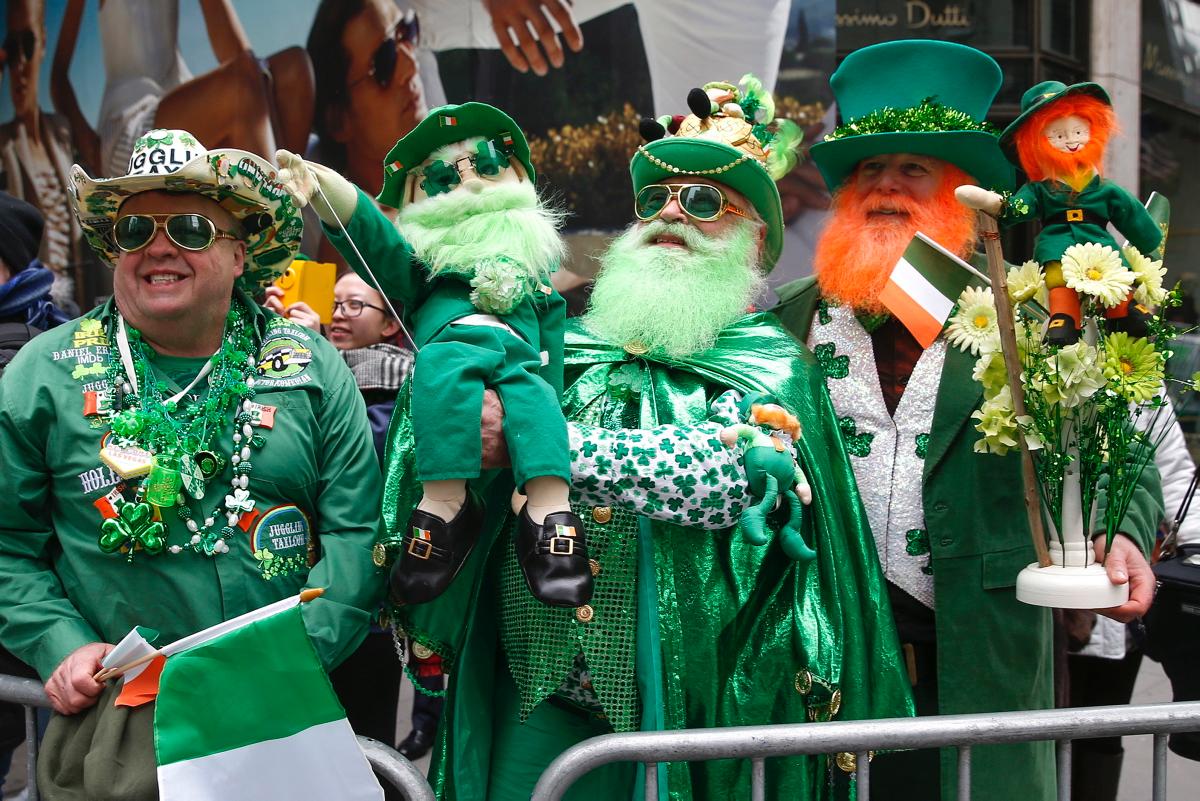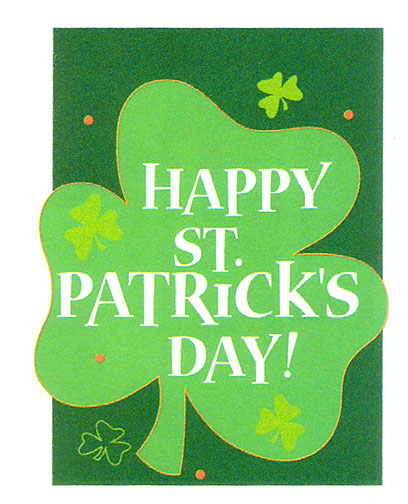Get ready to receive the luck of the Irish. St. Patrick’s Day is March 17, and everyone is figuring out his or her plans for the big day. While some people might be spending the day feasting on corned beef and cabbage, others might be preparing for bigger festivities.
St. Patrick’s Day is widely recognized as a day to celebrate St. Patrick, the patron saint of Ireland. St. Patrick is often noted for being the first bishop of Ireland and bringing Christianity to the country. During his time in the country, he preached to the people—using images such as the shamrock to conceptualize the Holy Trinity, according to Catholic Online.
Outside of his missionary work, St. Patrick is often remembered by the native legends surrounding his life. These legends, along with his life’s work resulted in him being canonized as a saint in the Catholic Church, as well as St. Patrick’s Day becoming a recognized holiday in both Ireland and the United States.
“I studied abroad in the fall of 2013 in Belfast, Northern Ireland, and it really changed my perspective on St. Patrick’s Day,” senior history major Alex McCumiskey said. “Living in the midst of the political and religious tensions that have come to define Belfast, it became apparent to me that St. Patrick’s Day isn’t just for those who identify as Irish or are of Irish heritage, but rather it is a day that needs to be celebrated as the proliferation of God’s word and for having the craic, a good time.”
Although St. Patrick’s Day has religious roots, some say this annual holiday has become a secular event characterized by beer and large parties.
“Being that my family is from the Caribbean, we don’t celebrate St. Patrick’s Day—but I would love to introduce them to something new,” freshman journalism and mass communication major Kevin Montes said. “Celebrating culture, in general, is beautiful to me. I love that, although we live in America, people with Irish heritage do not lose their culture and they remember their cultural identity.”
Many town officials often throw their own St. Patrick’s Day parades, where attendance and participation in the event are not contingent upon Irish heritage. These parades often feature traditional Irish step dancing, folk music and food—all among an abundance of green. St. Patrick’s Day parades are sometimes even made into an annual outing for family and friends. Every year, cities compete for who can throw the biggest parade, with New York City often being ranked as the biggest St. Patrick’s Day parade in the United States.
“Every year, I march in the St. Patrick’s Day Parade in New York City,” junior sports studies major Matt Creeron said. “I love seeing the sea of green wherever you go.”
For those who cannot make it to the parade in the city, local community celebrations are an option. Even if these festivities are smaller in size, some say that the spirit of the parade is just as strong.
“My family always attends the St. Patrick’s Day parade in Rochester,” John LaDuca, a freshman undecided major, said. “We usually watch Irish dancing and eat a ton of Irish food. My favorite thing about St. Patrick’s Day is having a fun time with friends.”
mcgurllt14@bonaventure.edu








